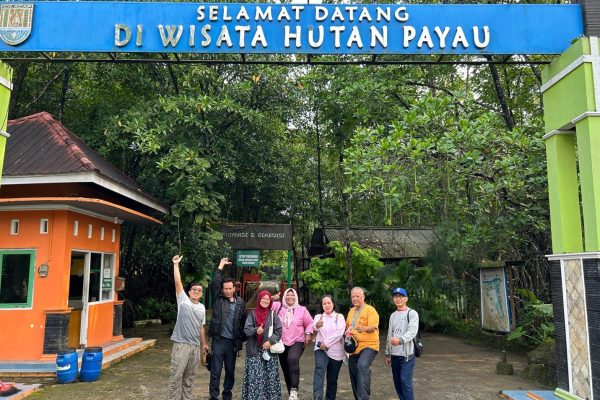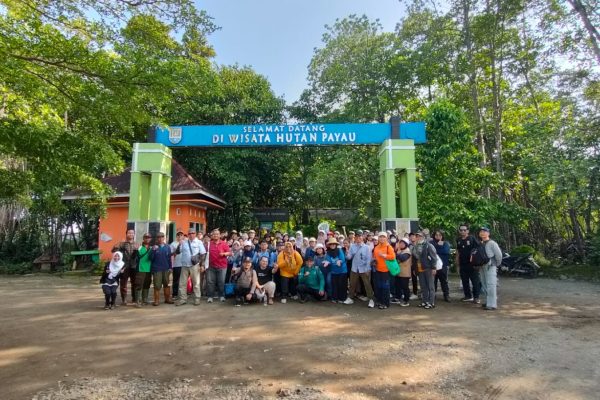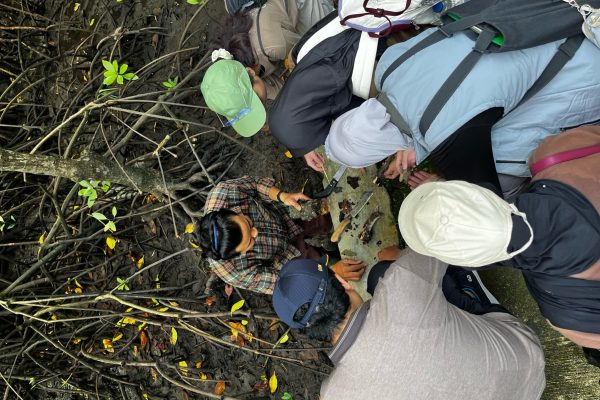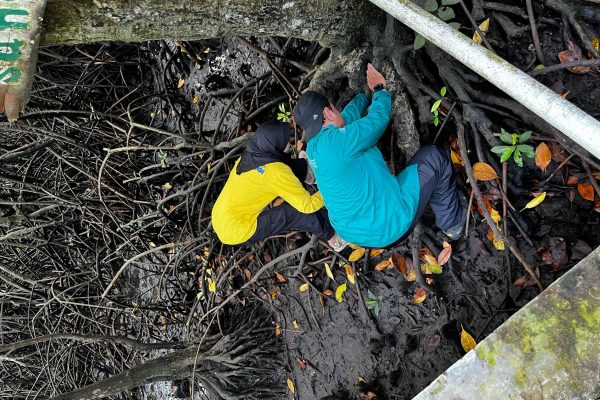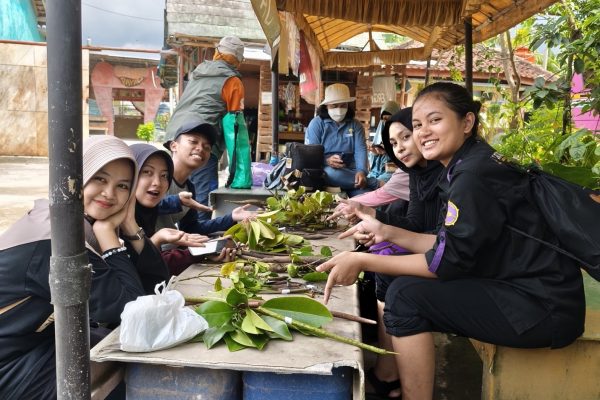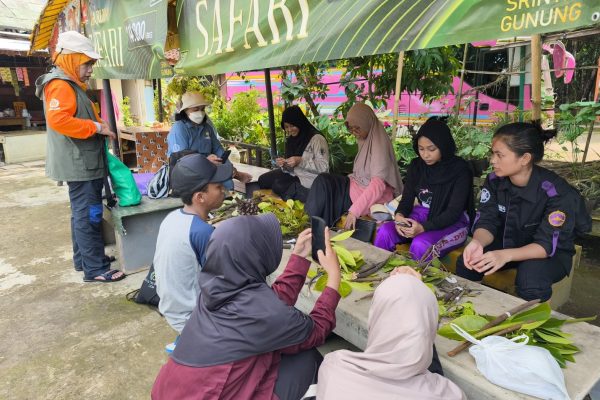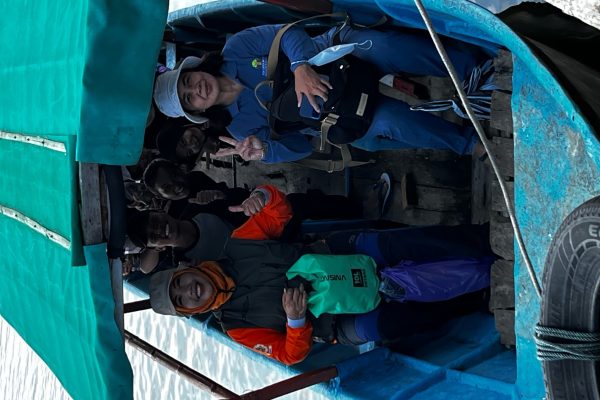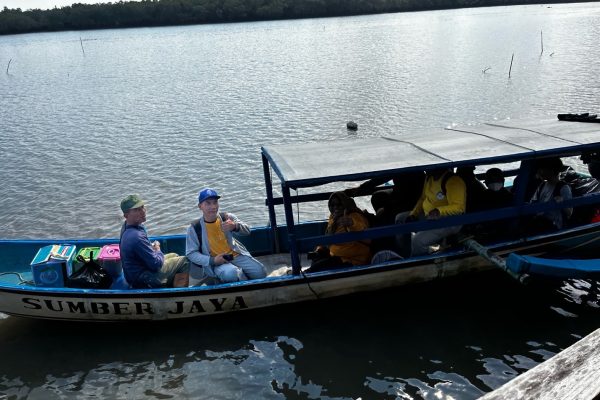Faculty of Biology Universitas Gadjah Mada (UGM) held the 2025 Scheduled Internship activity which took place on 20–22 June 2025 in the Cilacap Payau Forest area, Central Java. This activity was attended by 44 students and 17 lecturers with the main focus on introducing mangrove ecosystems, implementing collaborative research, and developing student skills in the field.
The Cilacap Payau Forest area was chosen because it is a unique transition zone between terrestrial and aquatic ecosystems with an area of around 10 hectares. This mangrove forest plays a crucial role as an ecological buffer zone for the Segara Anakan area and is an ecotourism destination with collaborative management between Perum Perhutani KPH Banyumas Barat and the local Forestry and Plantation Service.
During the three-day activity, students explored the diversity of mangrove flora and fauna, collected vegetation data, surveyed wild epiphytic orchids, studied plant morphological adaptation, and analyzed the diversity of fish, crustaceans, and insects. Other activities include making herbarium, insect collection, sediment and litter sampling, and observation of lichen and honey bees. Students are also trained in the use of practical methods such as fish morphometric analysis and anatomical adaptation of mangrove leaves. In supporting field activities, the committee also provides various facilities, including a basecamp for briefings and rest, three boats that can be used for the sampling process up to the young sea, and local guides who assist in collecting field data.
“This practical work is very important as a means of real learning for students in understanding the complexity of the mangrove ecosystem and developing applicable field research skills. We also hope that this activity can encourage increased awareness of the importance of brackish water ecosystem conservation for environmental balance and the lives of the surrounding community,” said Sukirno, S.Si., M.Sc., Ph.D., one of the supervising lecturers.
In addition to supporting the process of education and academic research, this activity is also in line with the objectives of the Sustainable Development Goals (SDGs), especially in terms of aquatic ecosystem conservation (SDG 14: Life Below Water), terrestrial ecosystem preservation (SDG 15: Life on Land), and strengthening partnerships to achieve global goals (SDG 17: Partnerships for the Goals). Through active collaboration between UGM academics and local communities, this activity is expected to be able to provide a positive contribution to environmental sustainability and the socio-economic welfare of the local community. With the ongoing activity, the Faculty of Biology UGM is committed to continuing to be at the forefront in encouraging integrative education, useful research, and sustainable community service.

